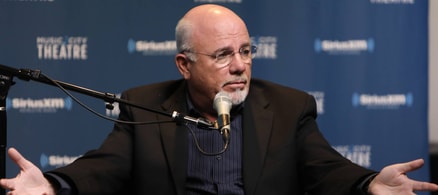Types of trusts
In Canada, there are two broad types of trusts: testamentary and inter vivos.
Most wills contain a testamentary trust, which is essentially an outline of how a person wants their assets to be dispersed after they die.
Inter vivos trusts, while less common, are a variety of trusts that are not necessarily part of a will, and they can be in force while the settlor is alive. There are multiple types of inter vivos trusts, but each solves a specific issue.
Some examples include alter ego trusts, which a person can set up after the age of 65 to provide for themselves if they’re no longer able to do so; joint partner trusts, which are designed to care for spouses; and Henson trusts, which protect people with disabilities.
Maximize Your Tax Refund with TurboTax Canada!
Simplify tax season with this user-friendly software. Get step-by-step guidance, maximize deductions, and file with confidence. Trusted by millions, TurboTax Canada ensures accuracy and peace of mind. Start your taxes today and get the refund you deserve
Get the tax refund you deserveA specific tool for specific needs
While they’re rare, those exceptional circumstances do come up where a trust makes sense.
Keith Masterman, vice-president of tax, retirement and estate planning at CI Global Asset Management in Toronto, cites one example where a pregnant mother who was on her way to the hospital was in a terrible car wreck, leaving her baby permanently disabled.
With the money they received from the settlement, the parents set up a trust for the child to ensure she’d be taken care of even when her parents were gone one day.
There’s also the aptly named spendthrift trust, which ensures a pile of money won’t simply be dropped into a young person’s hands on the day they turn 18. Instead, their property or assets will be managed for them for a set period, ensuring they won’t blow it all on a Ferrari or fancy vacation.
A trust for your family cottage?
While trusts are commonly associated with helping children, older people or those incapacitated in some way, they can also be handy when you’re trying to figure out how to manage vacation homes or cottages. Moving that asset into a trust helps maintain control over how that property should be shared and run fairly.
That last situation is one Kris Rossignoli, a private tax manager at Cardinal Point Wealth in Toronto, is seeing more of these days.
“If mom and dad or grandma and grandpa want to purchase a vacation property for all of the kids to use, the trust would outline the terms of use … as well as the management of the property,” says Rossignoli. “It adds a little more control and some formality to it.”
Grow Your Savings Effortlessly with Moka
Automate your savings with every purchase and watch your money multiply. Moka rounds up your transactions and invests the spare change. Start building wealth effortlessly today. Join thousands of Canadians embracing financial freedom with Moka
Sign up nowTaxes and fees complicate things
Experts say trusts are used sparingly these days, for good reason.
First, they come with some hefty fees attached. Rossignoli says you should expect to pay about $3,000 to establish a trust and then another $1,000 every year to manage it.
And since the tax laws on income splitting were changed a few years ago, it’s not a tax-efficient way to handle wealth. Any income from the trust will be taxed at the highest marginal income rate — in most provinces that’s close to or just over 50 per cent.
“There are fewer opportunities for trust planning now that the tax benefits have been minimized,” Masterman says.
Trusts are also treated as separate entities and therefore a tax return needs to be filed for them every year.
Finally, within 21 years of the trust being established, a deemed disposition comes into play. That means the contents will be treated as if they’ve been sold and the trustee will have to pay taxes on any of the capital gains that have been accrued over the last two decades.
Because of their expense and administrative requirements, Masterman says although trusts can be a useful tool for some, they're not for everyone.
“There has to be a very, very clear planning reason why you're creating that trust,” he says.
All the same, Masterman says establishing a trust can be a truly loving act and a way to protect those you care about.
“That's a great gift ... Because it means you have to look at the (specific) needs of your family. You're not just simply thinking, ‘Let them worry about it after I die.’”
More: What Bill C-208 changes?
Sponsored
Trade Smarter, Today
With CIBC Investor's Edge, kick-start your portfolio with 100 free trades and up to $4,500 cash back.







